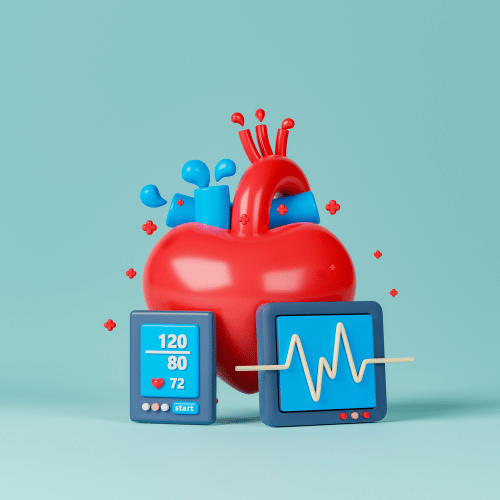
Medical Weight Loss Explained
The Science Behind Ozempic, Mounjaro, & Real Results Our Healthy Weight Clinic has seen some amazing success stories in recent
Cardiology > Ajmaline Challenge

Find Out More


Brugada syndrome is a rare, but often fatal condition that is the main cause of sudden death syndrome (SUDS or SADS). It is usually caused by a faulty or mutated gene inherited through the family line.
The condition affects the pattern of electrical signals passing through the heart, and can cause death through ventricular fibrillation, which is a type of arrhythmia in which the heart quivers instead of pumping blood, or through suddenly causing the heartbeat to become very fast.

Ajmaline is an anti-arrhythmic agent and sodium-channel-blocking drug which is used to diagnose Brugada syndrome. It is considered to have the highest sensitivity of all drugs that can be used to diagnose this condition.
The way it works is that the doctor will inject ajmaline into your arm during an ordinary electrocardiogram (ECG), which is a test to measure your heart’s electric signals. The presence of the drug will help to make clear any unusual heart patterns that we need to be aware of.
In addition to providing an accurate diagnosis of Brugada syndrome, it plays a key role in guiding treatment strategies by helping to determine the most effective approach, including the potential need for an implantable cardioverter-defibrillator (ICD) or other interventions.
Furthermore, an accurate diagnosis enhances patient safety by ensuring that individuals with high-risk conditions are identified and managed appropriately, thus preventing potentially life-threatening arrhythmias.


Brugada syndrome often presents without noticeable symptoms. However, some patients with this condition may experience blackouts, fits or seizures, occasional palpitations, chest pain (angina), dizziness, or sudden shortness of breath.
These symptoms can be triggered by factors such as high body temperatures, excessive alcohol consumption, or dehydration. Typically, the symptoms are more likely to appear around the ages of 30 to 40. If you have a family history of Brugada syndrome or have lost family members to sudden death syndrome, it is strongly advised to consult a cardiologist.
Before undergoing your procedure, it is helpful to know what to expect.
Use our online booking engine or book your test by giving us a call.
On the online booking engine select the “appointment type” you need.
You will be seen by one of our friendly doctors or trained clinicians.

Prior to the test, you will be asked to provide a detailed medical history and information about any medications you are currently taking.

You will be connected to an ECG monitor to record your heart’s electrical activity. Ajmaline will be administered intravenously under controlled conditions. Your heart’s response to the medication will be closely monitored through continuous ECG recording.

After the challenge, you will be observed for a short period to ensure that you recover fully and to monitor any delayed effects of the medication.
Incorporated
in 1998
Experienced doctors & a professional team
Registration
not needed
Up-to-date with the latest treatments & testing
Strictly
confidential
Experienced doctors & a professional team
Affordable private
health care
Transparent fee structure with no hidden charges
We work with experienced consultants & healthcare professionals who have received positive feedback from our patients, and with whom we have established long-term relationships.
Latest Episode
Tune in to our podcast to explore the world of healthcare and learn from distinguished special guests. We cover everything from preventative measures to cutting-edge treatments so that you can stay informed and up-to-date on health-related things.

The Science Behind Ozempic, Mounjaro, & Real Results Our Healthy Weight Clinic has seen some amazing success stories in recent

If you travel to London, you may wonder how to access medical care while here. It can be unclear, as

More and more people are obtaining private doctor appointments. One reason is the reduced availability of NHS doctor appointments, but
Subscribe for latest updates & news


From same-day private GP and blood test appointments to visa medicals, a sexual and reproductive health clinic, and preventative health screenings, we are here to help.
Contact Us
Accepted Insurance Companies






Please note that Walk-in Clinic is a private medical centre & not an NHS service. Harley Walk-in Clinic Ltd company registration no. 07472804